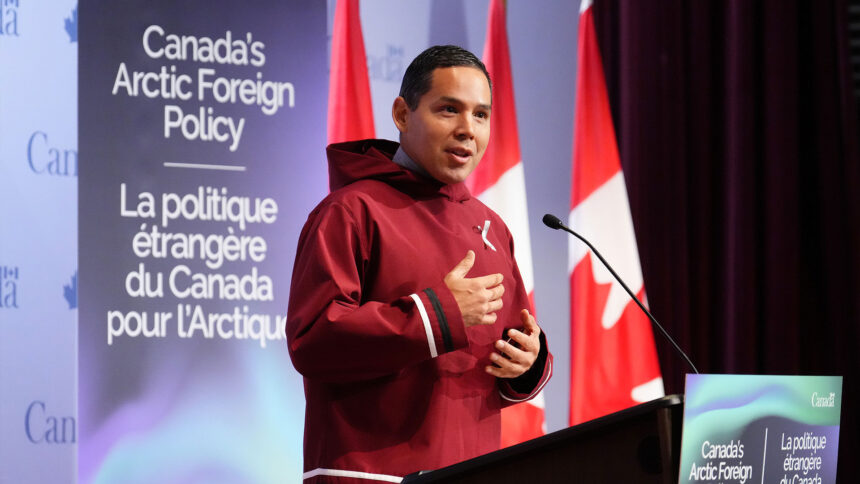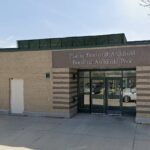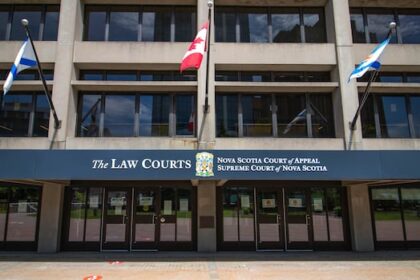Inuit Tapiriit Kanatami (ITK) President Natan Obed warned the Senate’s Standing Committee on National Security, Defence and Veterans Affairs (known as SECD) that threats to the Canadian Arctic are pressing, and they come from both without and within the country. He argued that foreign actors and Canada’s own lack of investment each pose crucial threats to Arctic sovereignty and Canadian security as a whole. Appearing as a witness before an evening meeting of SECD on Nov. 17, Obed listed three different threats to sovereignty in the North, he said, Canadians should be concerned about. The first threat he stressed was foreign investment, both in mineral resource extraction, as well as in the form of support for large projects. “There are other countries that would love to underwrite Inuit infrastructure projects,” Obed said, “and if the Canadian government is not willing to provide opportunities for Inuit to build our own self-determination and the essential infrastructure in our homeland, then I could imagine that you were setting the scenarios for foreign investment, which may or may not be friendly investment, and only focus on economic development.” A second concern, he said, was other countries—both those in the Arctic region and those that consider themselves “New Arctic”—seeking to invest in Arctic research. “Access to the Canadian Arctic and data sets that come from that research could be incredibly valuable for future nation states’ considerations for the Northwest Passage, or for the Arctic generally,” he said. “That is an emerging threat to Canada’s sovereignty.” By contrast, he noted, Canada is investing significantly less in Arctic research compared with other nations. That despite the fact that 25 per cent of the Arctic is located inside Canadian borders. Finally, Obed said, Canada lacks an enforcement mechanism to deal with countries or their vessels entering the Northwest Passage in the summer or traversing in winter. Read more: Inuit leaders present nation-building plan in ‘One Economy’ meeting with Carney Inuit leader hopes ‘spotty’ record of working with bureaucrats improves with Inuit Nunangat Policy “The ability for the Canadian government to intercept or to take action against these foreign vessels is limited,” he explained, noting that the situation “leads to more brazen considerations from other countries, or individuals from other countries, who just may not feel like abiding by Canada’s administrative rules around access to Canadian waters.” Yet Obed stressed he felt none of these issues could be improved without a far greater recognition of the importance of Inuit in the North itself, and their role as occupants of the Arctic. “We focus on the need for Canada to invest more in the health and well-being of our people,” he said, “to retain and support Inuit as the region’s future and most important resource. And we emphasize the need for Canada to enact a broader vision for bringing Nunangat into the rest of the country.” Inuit themselves have never been considered the people who could do the most with Arctic funding. Much of the essential infrastructure in the North, Obed said, was built not by Inuit but by the U.S. military during the Cold War, between the 1950s and 1980s. That infrastructure is still in use, he noted, but since that time, there have been minimal Canadian investments in building Arctic infrastructure, even as foreign investments in the Arctic have exploded. Russia, with backing from China, is investing copiously in the North. “Canada is woefully behind in its spend,” Obed said. “Other countries are putting their money into security, defense, economic development, and sovereignty structures within their part of the Arctic, and wanting to encroach on Canada’s. We have not put the necessary funding into protecting our own sovereignty.” Inuit Tapiriit Kanatami (ITK) President Natan Obed speaks to the Senate’s Standing Committee on National Security, Defence and Veterans Affairs, Nov. 17, 2025. Screengrab from ParlVu. Meanwhile, he noted, ship traffic through the Northwest Passage has been increasing, as Russia has made claims on the North Pole area, and the United States has not recognized the Northwest Passage as internal Canadian waters. “We live in a much more turbulent time,” Obed said, “and I don’t believe that this country really understands the comparative weakness of Canada’s position, based on its lack of investment.” For Obed, improving security in the North requires investment in essential infrastructure for the 51 Inuit communities. He called in particular for paving and extending gravel airstrips, adding lights to runways in communities like Nain, Labrador, currently unable to handle air-traffic between sunset and dawn, building deep water ports (as there is only one in the Arctic) and expanding the fleet of available icebreakers. Nova Scotia Sen. Stan Kutcher, from the Independent Senators’ Group, noted that Japanese vessel Mirai II, from the Japan Agency for Marine-Earth Science and Technology, will begin conducting research in the Arctic in winter 2026, with a capacity to break 1.2 metres ice at three knots. Canada will pay to buy time on that vessel, Kutcher said, because it has no vessels of its own capable of doing arctic research. Kutcher noted the Coast Guard also lacks capability in the Arctic. “[The Coast Guard] cannot intercept and detain foreign vessels,” Kutcher said. “We have a number of brand-new ice-capable frigates, which means they can’t break ice, so that will really limit their operations. And they have no sea to air missile defense capability.” Another piece of infrastructure lacking in the Arctic is fibreoptic internet, which Obed noted Greenland has been able to use to connect its communities. In contrast, communities in the Canadian north recently graduated from slow and buggy traditional satellite internet to the significantly improved quality of Starlink, which Obed said has replaced virtually all internet providers over the last three years in the Inuit homeland—even for government agencies. As it has become clear that Starlink and its owner Elon Musk are not politically neutral, Inuit have grown more uneasy about their reliance on the service. “We are at the mercy of a company and an individual that may or may not use that to his advantage or for other interests,” Obed said. He alluded to reports of Elon Musk’s highly politicized handling of Starlink in Ukraine, where Musk is alleged to have shut down internet services his company provided to the Ukranian military in order to prevent a planned offensive against Russia. Obed underlined that a telecommunications system run by a volatile and chaotic political figure was not the best foundation for strong Inuit infrastructure. Rather, he argued, fibre internet is one of the keys to bringing Canada up to speed with other countries hoping to find the means of profiting in the Canadian north. “We don’t have fiber connectivity in our communities,” he said, “and we have long advocated and lobbied for connectivity as a great equalizer, something that would create equity. If we’re going to expand our military operations in the Arctic and our defense capabilities, having state-of-the-art technology would only aid us in that purpose.” Simultaneously, he argued, such investment would expand educational and business development capabilities across the North. Obed stressed above all that Inuit themselves offer Canada the capacity for distant-early warnings about changes to and events unfolding in the North. He’d like to see their contributions recognized and reinforced. “Inuit families and Inuit hunters traverse just about all of our homeland over the course of a year,” he said, “and anything that is amiss or out of place, or anything that is exceptional, is reported immediately back to the community, and in many cases, the [Canadian] Rangers. “Whether [that’s] ships running aground or unmarked vessels that are traversing through the Northwest Passage or weather balloons or anything like that, hunters on the ground and the people who use the land will be able to spot an abnormality and report it. I think the collaboration process can be more formal.” Continue Reading
Threats to Canadian rctic come from both outside and within: Obed

Leave a Comment










